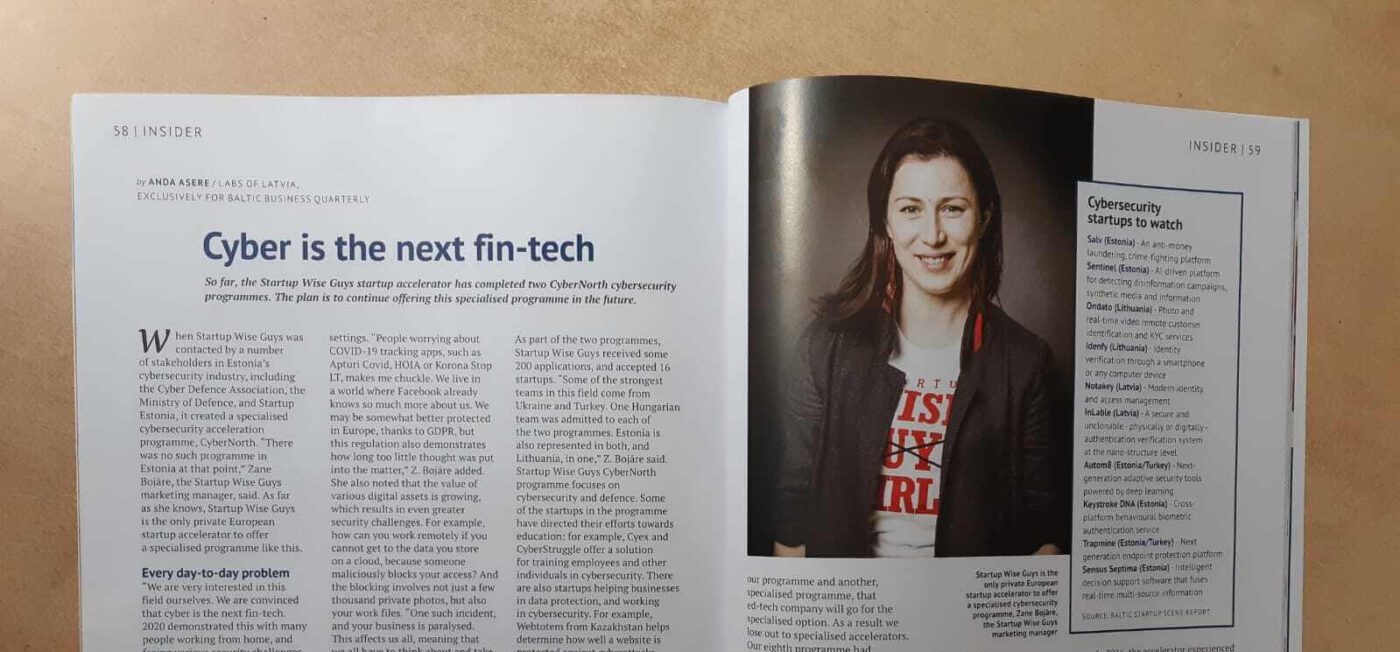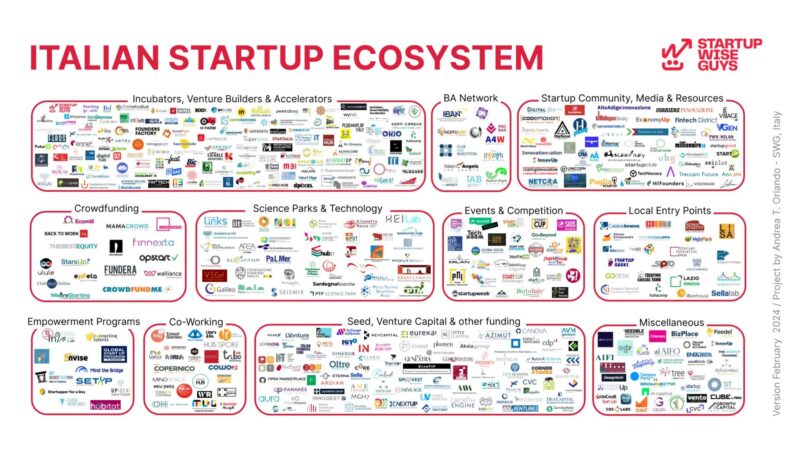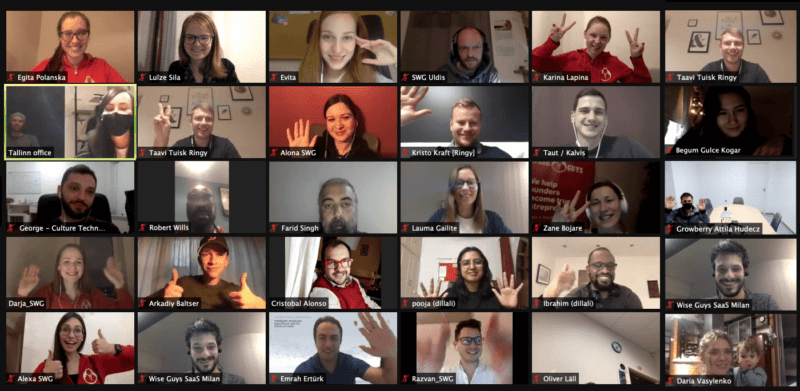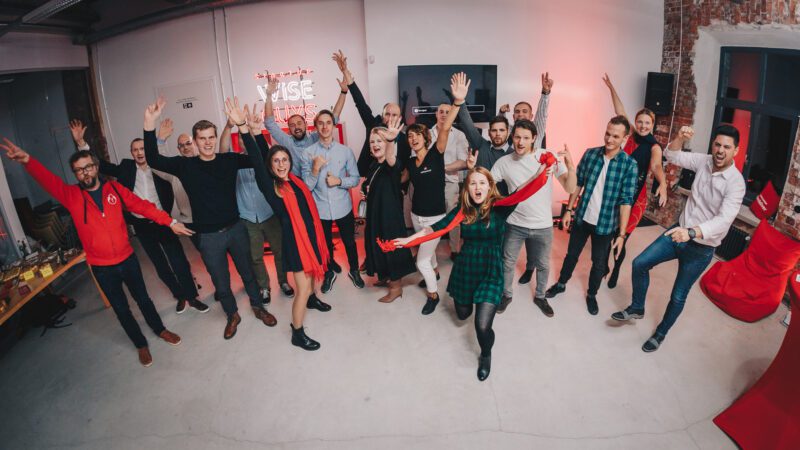Excerpt from article originally published in Baltic Business Quarterly, written by Anda Asare.
So far, the Startup Wise Guys accelerator has completed two cybersecurity programs and we plan to accelerate more startups in the near future. When we started CyberNorth in Estonia, there was no such program present in the country and actually to our knowledge this was the only private European startup accelerator to offer a specialised program like this. CyberNorth received significant support from Estonia’s cybersecurity industry, including the Cyber Defence Association, the Ministry of Defence, and Startup Estonia.
Cybersecurity is a day-to-day problem
We are convinced that cyber is the next fintech. 2020 demonstrated this with many people working from home, and facing various security challenges. Five years ago, cybersecurity still only concerned specialists; today, it is an everyday problem for everyone.
Zane Bojāre
People do not keep their documents on physical devices anymore. Now it is all connected via the cloud, both private and professional affairs. And it is the pandemic suddenly forcing a large number of people to work from home that caused the private and the professional to fuse together. For example, business calls via Zoom take place through a private internet connection that is very likely to have different security settings.
People worrying about COVID-19 tracking apps, such as Apturi Covid, HOIA or Korona Stop LT, makes me chuckle. We live in a world where Facebook already knows so much more about us. We may be somewhat better protected in Europe, thanks to GDPR, but this regulation also demonstrates how long too little thought was put into the matter.
Zane Bojāre
She also noted that the value of various digital assets is growing, which results in even greater security challenges. For example, how can you work remotely if you cannot get to the data you store on a cloud, because someone maliciously blocks your access? And the blocking involves not just a few thousand private photos, but also your work files.
One such incident, and your business is paralysed. This affects us all, meaning that we all have to think about and take care of cybersecurity. Moreover, the sophistication of the methods used by criminals is increasing constantly.
Zane Bojāre
Substantial interest from startups
Both cyber programs carried out so far took place in Estonia. In 2019, the program took place entirely in person, and in 2020, it began in spring, coinciding with the arrival of the COVID-19 pandemic in the Baltics. Because of this, the rest of it happened online, with only short on-site weeks culminating with the Latitude59 conference in August. As part of the two programs, we received some 200 applications, and accepted 16 startups.
Some of the strongest teams in this field come from Ukraine and Turkey. One Hungarian team was admitted to each of the two programs. Estonia is also represented in both, and Lithuania, in one.
Accelerator program focuses on cybersecurity and defence. Some of the startups in the program have directed their efforts towards education: for example, Cyex and CyberStruggle offer a solution for training employees and other individuals in cybersecurity. There are also startups helping businesses in data protection, and working in cybersecurity. For example, Webtotem from Kazakhstan helps determine how well a website is protected against cyberattacks. In contrast, Fakes Killer from Ukraine works on fake news. Defence startups, such as Sensus Septima from Estonia, also took part in the CyberNorth program.
We scout teams all year long, so if you are cooking the next Cyber or Defence startup superstar, let us know about yourself (apply here).



